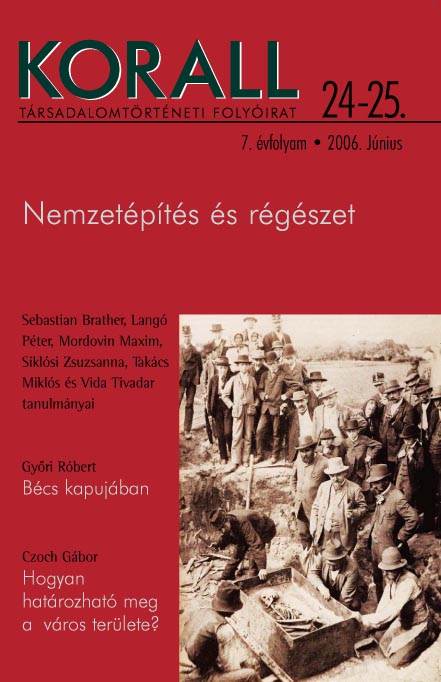Az etnikum kérdése a német kora középkori régészetben 1945 után
The question of ethnicity in German early-medievalarchaeology after 1945
Author(s): Tivadar VidaSubject(s): History
Published by: KORALL Társadalomtörténeti Egyesület
Summary/Abstract: Certain representatives of the study of early German history (Frühgeschichte –cc. the fi rst Millennium AD) blame their predecessors for the fact that the substanceand methodology of the defi nition of ethnicity has remained unchanged since 1945; essentially the question of ethnicity is still defi ned by the 19th centuryromantic ideas presupposing the unity of people, language, (archaeological)culture and race. While historians did undergo a change of paradigm andleft behind the ideology of “völkisches Denken” to create a study of history thatis modern as regards its methods, laws and theories, archaeological students ofancient and early history remained unaff ected by this. Archaeologists formallyentrenched themselves behind the archaeological analysis of the fi ndings andseemingly only dealt with these fi ndings and the cultures, wholly ignoring ortreating matters of history and ethnicity with unnecessary care. Th is approachhad been maintained by the researchers and school founding universityprofessors of the 50’s-70’s and their students. After 1945 it became possible forprofessionals to treat “ethnic identity” as a purely scientifi c question rather thana political one. The doubts regarding Gustaf Kossina’s theories could come tolight; the approach equating “object” with “ethnicity” was left behind. At thetime, however, archaeology lacked a unifi ed and modern concept of ethnos, thatcould have served as the basis for research. The possibility of change and renewalfor the German archaeology of the early middle ages came from the field ofhistory and, partly, from ethno-sociology. The authors most committed fromthe point of view of ethnic interpretation acquired their degrees under JoachimWerner at Munich University; their works are closely related to those of theMaster both as regards their contents and their methodology, therefore the defi -nite ethnic program of Werner’s school has defi ned the German research of theearly middle-ages for several decades.
Journal: Korall - Társadalomtörténeti folyóirat
- Issue Year: 2006
- Issue No: 24-25
- Page Range: 203-215
- Page Count: 13
- Language: Hungarian

